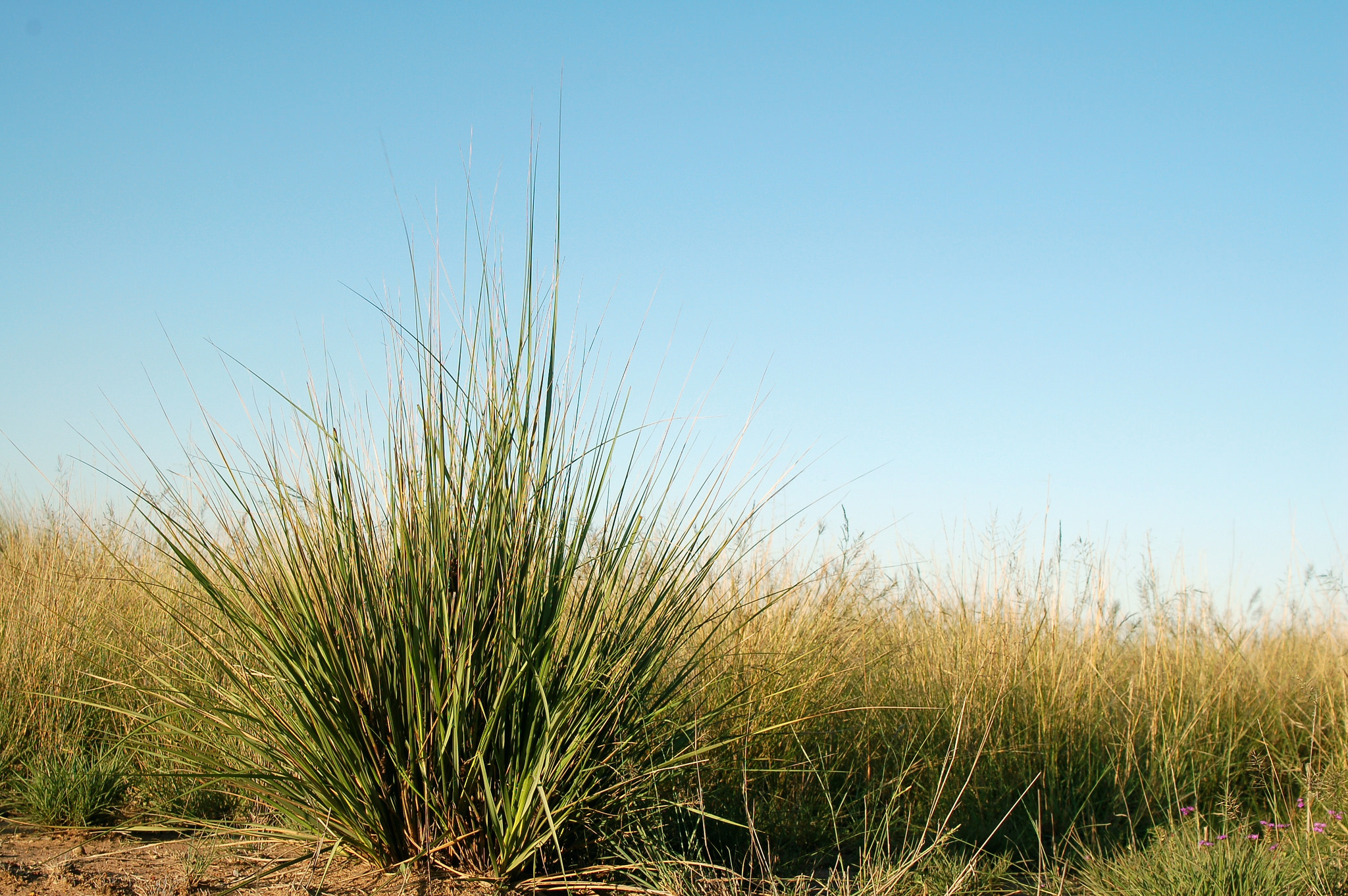Fulbright scholar Brandon RichardWebster is working to improve the way computer systems see things by studying the subtle cues of biological vision systems that have evolved through millions of years.
Mr RichardWebster, from the University of Notre Dame, Indiana, applied to undertake his scholarship work at QUT because of the opportunity to work with Professor Jennifer Firn, a world-leading expert on African lovegrass (ALG), and Professor Michael Milford, who conducts interdisciplinary research at the boundary between robotics, neuroscience, and computer vision at the Australian Centre for Robotic Vision, which is headquartered at QUT.
The Fulbright Program is the United States government’s flagship international educational exchange program and is designed to build lasting interpersonal connections. Fulbright scholarships are awarded on the basis of academic and professional achievement, as well as leadership potential in their respective fields.
Professor Jennifer Firn said Mr RichardWebster would be investigating ways to automate identifying invasive grass species such as African lovegrass from native species using photos and video footage.
“This could make early detection and estimates of the coverage of species so much easier for landholders including Traditional Owners and farmers – and therefore increase Australia's ability to prevent the wide-scale invasion of high impact invasive plant species that negatively impact on biodiversity, ecosystem functioning, cultural practices, social welfare, and economic returns from agricultural landscapes,” Professor Firn said.

Mr RichardWebster will develop an algorithm system to detect ALG from images, including those captured by drones.
“I wanted to get my hands on a real-world application that could directly impact someone’s life, and this just fitted really well,” Mr RichardWebster said.
Mr RichardWebster will be co-supervised in his research by Professor Milford and Professor Chris McCool, a QUT alumnus now at the University of Bonn.
Professor Milford said he was attracted to the research project from his interest in “the interplay between artificial and natural systems, and how they can learn from each other and benefit from each other.”
“Brandon’s research beautifully spans both of these,” Professor Milford said.
“You have humans who can do the job to various degree and you have algorithms and machines that can do the job to varying levels of competency.
“Where Brandon’s particular expertise around psychophysics is, it’s understanding the extent to which humans do some parts of it well, some parts of it not so well in order to work out what the best balance in interaction is between human experts doing a task and machines doing it.”
Mr RichardWebster said ALG was difficult to detect from the air because of its similarity to other types of grass.
“After all, how ‘different’ can ALG be from other grass species?” he said.
Computer vision intelligence systems, in uses such as facial recognition, typically identify things by looking for easily distinguishable features, such as eyes, nose, and mouth.
Because ALG looks similar to other grasses, Mr RichardWebster believes the key to developing a system that will identify it is to mimic the subconscious decision making processes people would make in identifying it, whether they be ecologists, farmers, and people not previously familiar with the ALG.
“We could mix subtle visual cues that humans use, whether it be a non-expert or an expert, and improve the way the algorithm is doing it based on those cues,” Mr RichardWebster said.
His research will include a field trip to Bega Valley in New South Wales to gather data from local farmers about their farming practices and family farming history, as part of the cultural exchange aspect of his Fulbright scholarship.
Mr RichardWebster believes projects like this can be a step towards artificial intelligence tools to aid farmers worldwide, and provide further insight into the differences between artificial perception and human perception at large.
The opportunity to study in Brisbane is not the first time Mr RichardWebster has experienced study abroad, with one particular experience being a turning point in his life after a childhood of turmoil and conflict.
At age 11, Mr RichardWebster had to testify in court that his mother, a meth addict, was unfit to care for him.
In speaking of his past, Mr RichardWebster said the phrase “unfit to care” sanitized the difficulty of his childhood.
“In reality, it was brutal,” he said. “I experienced physical and emotional abuse. I was moved from one drug house to another. I was starving.”
From age 11 he was raised by his grandparents, who he describes as “awesome people”, and set his heart on becoming a Christian missionary.
“I wanted to become a pastor, because I really wanted to counsel people and I felt that was the best way to do so in terms of strengthening and helping people overcome their background,” he said.
He enrolled in theological studies at Bethel University in Minnesota, but his difficult past affected his studies and with low grades he was put on probation.
Then, when in Kenya on a Bethel study abroad program, he began tutoring his roommate, a computer science major, in computer science and realised he had a talent for the field and the ability to understand people and biological processes in another way.
A switch from theology to maths and computer science gave him a renewed sense of purpose.
Instead of being a missionary, he is a computer scientist finishing his PhD at the University of Notre Dame, working with communities through his scholarship and passionate about encouraging people from a wide demographic background to follow their own academic journeys.
“I feel like I’ve come full circle. I always wanted to work with people and, through my work and this scholarship, I’m crossing international boundaries in a program designed to bring people together,” Mr RichardWebster said.
Media contact:
Rod Chester, QUT Media, 07 3138 9449, rod.chester@qut.edu.au
After hours: Rose Trapnell, 0407 585 901, media@qut.edu.au




